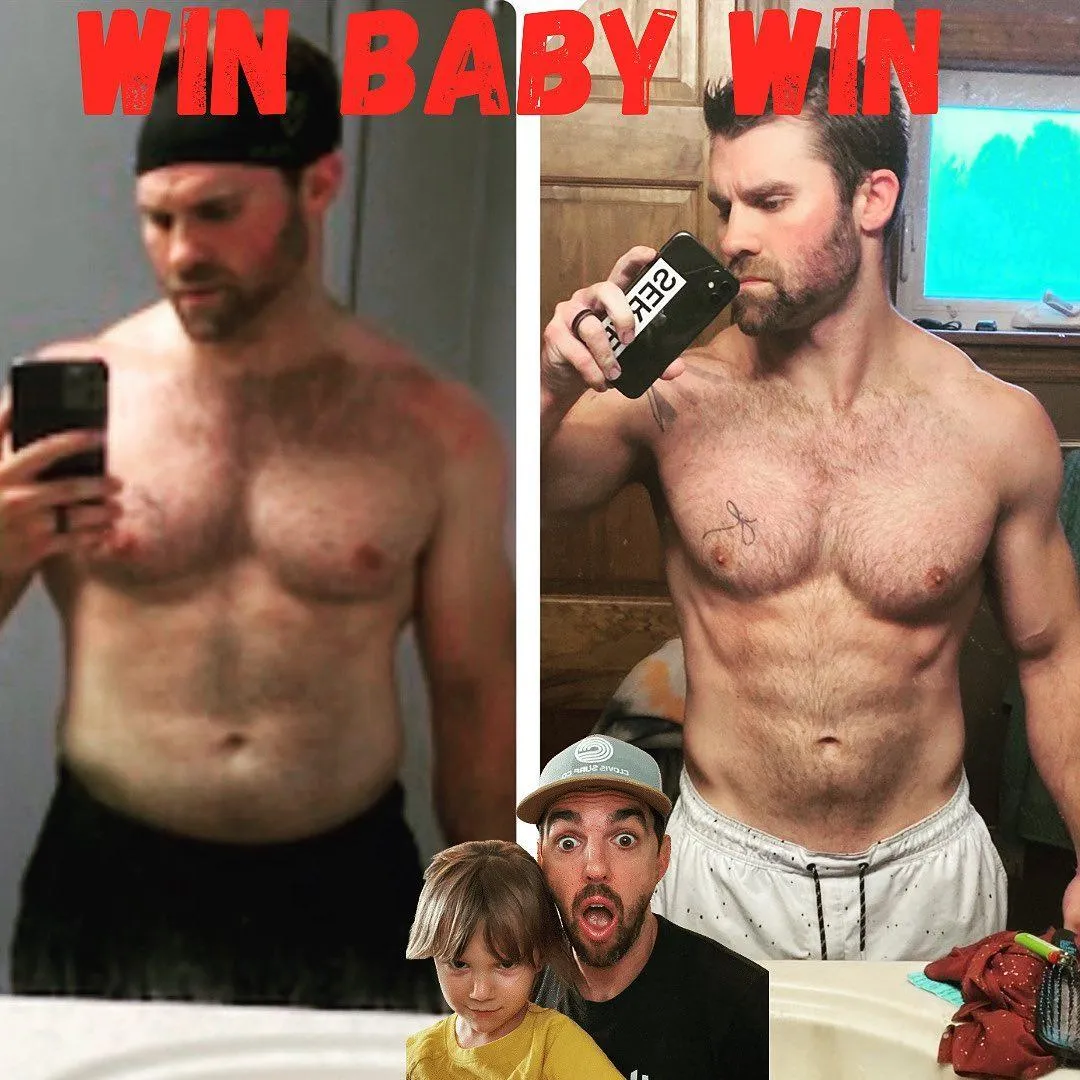The Latest: Inside Coach Tim Thackrey's Mind
with my latest tools to get you Back in the Game!
Articles, Resources, Tools, & Trainings
For Ex-Athletes, Martial Artists, & Busy Professionals

What Happens When Your Nutrition & Workouts Don't Mix!
What Happens When Your Nutrition & Workouts Don’t Mix?
It's a tale as old as time. Maybe. Ok, I don't really know when it started but I do know that when it comes to achieving your fitness goals—whether you’re aiming to lose weight, gain muscle, or improve overall health—the synergy between your nutrition and workouts is critical.
However... many people make the mistake of not aligning these two key components, which can result in unwanted side effects like stalled progress, hormonal imbalances, and ultimately, frustration, apathy, and a case of the 'fuck-its'.
With Spring Break right around the corner - I'm going to dive into the most common mismatches I've seen between nutrition and exercise - plus my insights on how they impact your body, and most importantly, how to fix them for optimal results.
Watch the Video Training, ==> HERE!
1. Higher Carbs + High-Volume Cardio: The Trap of Burning Muscle, Not Fat
A common mistake for people aiming to lose weight is cutting calories drastically while increasing high-volume cardio. While this may initially lead to weight loss, it's ultimately a flawed strategy. The problem arises because, despite what the scale shows, you're not burning fat—you're most likely losing muscle mass & water weight. And while yes, with enough time I'm sure there are plenty of examples of higher carb higher cardio leading to weight loss - that's a long, inefficient road with a lot of traps along the way. Possible...but I really don't want to recommend that here.
When you pair a low-calorie diet with excessive cardio, your body is left deprived of nutrients while being overworked. This results in your metabolism slowing down (lower BMR), making it less efficient at burning calories. Think of it like putting a car in “idle mode”—fuel is being consumed, but not at the optimal rate. These are 'day-trading' options...and the best transformations are more akin to a long-term investment strategy. They help us weather the short term areas that 'life' will throw at us [travel, date night, off-plan meals...FUN!]...because you've gained metabolic & hormonal leverage from doing the process correctly for what your body needs.
With higher carbs fueling these intense cardio sessions, your body prioritizes carbs as its primary fuel source, preventing fat from being used for energy. This means your body isn’t tapping into fat stores for fuel, but instead, burning through muscle tissue. The problem with losing muscle is that lean muscle mass is what keeps your metabolism running efficiently. So, while you may shed pounds, you're likely losing muscle, not fat, leaving you with a higher body fat percentage. Even worse, when you return from vacation or indulge in some "off-plan" meals (which should be part of a balanced lifestyle!), your body is now more likely to hold onto those additional calories as fat instead of turning them into muscle or glycogen for your next workout.
The flip side? Going too low-carb with excessive cardio isn’t ideal either. When carbs are cut too drastically, the body may tap into adrenal reserves, causing an increase in cortisol levels. This leads to hormonal imbalances that can reduce energy levels, impair fat burning, and contribute to muscle loss instead of muscle gain.
The Solution:
To avoid these pitfalls, it's essential to pair a moderate calorie deficit with resistance training that focuses on muscle preservation and growth. While cardio can be beneficial, it shouldn't be your primary focus. Strength training helps build lean muscle, boosting metabolism and supporting fat loss. Eating the right balance of nutrients—ones that fuel workouts without causing inflammation—is key. Foods that provide steady energy, support recovery, and don't trigger hormonal imbalances will help you avoid the negative cycle of poor energy, bloating, and a suboptimal body composition.
Download the Hormonally Optimized Food Guide ==> www.timthack.com/hormonalbalance
2. Misaligned Nutrition for Muscle Gain: Leverage Your Hormonal Response
If your goal is to gain muscle, yet you find yourself hitting a plateau, it’s likely because your nutrition isn’t syncing up with your resistance training. To build muscle your body needs an adequate amount of protein, healthy fats, and carbohydrates at the right times. It it also needs to have the trigger from your properly structured resistance training to create the lasting benefits.
Insufficient protein intake is one of the most common issues when it comes to muscle gain. Protein is the building block of muscle, and without enough of it, your body won’t be able to repair and grow muscle tissue effectively. Additionally, if your nutrition isn’t giving your body enough energy (via carbs and fats) to fuel your workouts, your body may not be able to create the hormonal response needed for muscle growth. Lastly, if the carbs you are taking in are causing inflammation in your gut, you may not properly break down the protein during digestion in the first place.
Simply lifting the weights & taking in protein may not be sufficient to accomplish this at a meaningful pace. Gaining muscle is hard. You need to ensure resistance training is both appropriately challenging, is structured in a way that helps you elicit more Growth Hormone & Testosterone, does not have a catabolic cortisol [stress hormone] response, and you can physically & mentally recover from it to create challenging muscle contractions again and again.
The Solution:
To build muscle effectively, make sure you’re eating a balanced diet [NOT at a deficit] with enough protein first and foremost. 1# per pound of goal bodyweight is starting. Carbs are also essential for fueling your workouts to create enough strong muscle contractions, while fats support hormone production. Pair this with resistance training, focusing on moving towards challenging muscle contractions [leaving just a couple 'reps in reserve', per set - aka, just short of failure] and ensuring your sleep quality is locked in especially during the 12am-2am window.
Download the Hormonally Optimized Food Guide ==> www.timthack.com/hormonalbalance
3. Training with High Carbs But Low Recovery: The Pitfall of Burning Out Instead of Looking "Shredded"
This one is easily the most popular question - it's an elusive goal because most have not ever done #1 and #2 properly. They want to shred, but lose bodyfat yet have no muscle. They want to shred...but they gain muscle but it's definition is hidden behind unneeded bodyfat. They got #1 or #2 or both but they wrecked their metabolism & hormones along the way and now their body is no longer optimally responsive. Ugh.
When people try to lose fat and gain muscle, there’s often a misunderstanding of when and how to use carbohydrates. Carbs are necessary for fueling more challenging workouts, but if you’re eating too many carbs without adequate recovery, you’re sabotaging your fat loss goals.
Carbs are great for fueling workouts, but they also raise insulin levels, which can hinder your ability to tap into fat stores for fuel. If you aren’t recovering properly—i.e., getting enough sleep, managing stress, and having an optimized nutrition plan—your body will prioritize storing fat and not utilize it for energy. This is where hormonal imbalance comes into play: high carb intake, combined with low recovery, can throw off your hormones like cortisol (the stress hormone) and insulin, making it harder to burn fat efficiently.
Resistance training here can take a few different forms, but leveraging super-sets & tri-sets [not in a HIIT or beat down metcon type of way] can have huge upsides. You can gain a metabolic bump from the adjusted work/rest structure designed to increase fat-metabolism without spiking cortisol, you still can create the necessary challenging muscle contractions needed to continue to gain muscle, and you
The Solution:
For getting Fight Club Shredded, carb timing is key. Eat carbohydrates around your workout times to fuel your activity and recovery, but keep them in check at other times. Focus on nutrient-dense, hormone-balancing foods that optimize fat burning. Also, make sure you’re prioritizing recovery, including proper sleep, stress management, and restorative practices.
The Big Picture: Finding the Right Balance
When your nutrition and workouts don’t align, your body goes into a state of maladaptation. You may experience stalled progress, hormonal imbalances, and frustration. Whether you’re trying to lose fat, gain muscle, or shred while maintaining lean tissue, it’s essential to focus on syncing your nutrition with your training.
Here’s how to get it right:
Fuel your body properly: Tailor your diet to support your workout goals. This means eating enough calories, focusing on nutrient-dense foods, and timing your carbs and protein intake appropriately.
Optimize your training: Make sure your workouts are aligned with your goals. Strength training is critical for fat loss and muscle gain, while cardio can complement but should never overshadow strength work.
Prioritize recovery: Sleep, stress management, and proper recovery protocols (like stretching and mobility work) are crucial to prevent hormonal imbalances and support long-term progress.
What do to Next?
When nutrition, training, and recovery work together, your body can perform at its best. If you’re ready to get your hormones balanced, optimize your metabolism, and make real progress, watch the full video on how to sync your training and nutrition [here], and don’t forget to download my Hormonally Optimized Food Guide to get started on your transformation today!
Download the Hormonally Optimized Food Guide ==> www.timthack.com/hormonalbalance

Your Next Steps:
Book a Call [link below] to gain clarity & define the starting point for your Phase 1 to Get Back on Track and Keep Your Results Forever.
Complete Your Personal Assessment to begin identifying the Root Cause of the specific issues holding you back & gain clarity on your goals.
Rebuild Your Body, Recharge Your Mindset, & Regain Your Competitive Edge - all while you ditch the restrictions & Live A Larger Life of Earned Freedom.

Follow Us
© Copyright 2023. Coach Tim Thackrey. All rights reserved.


